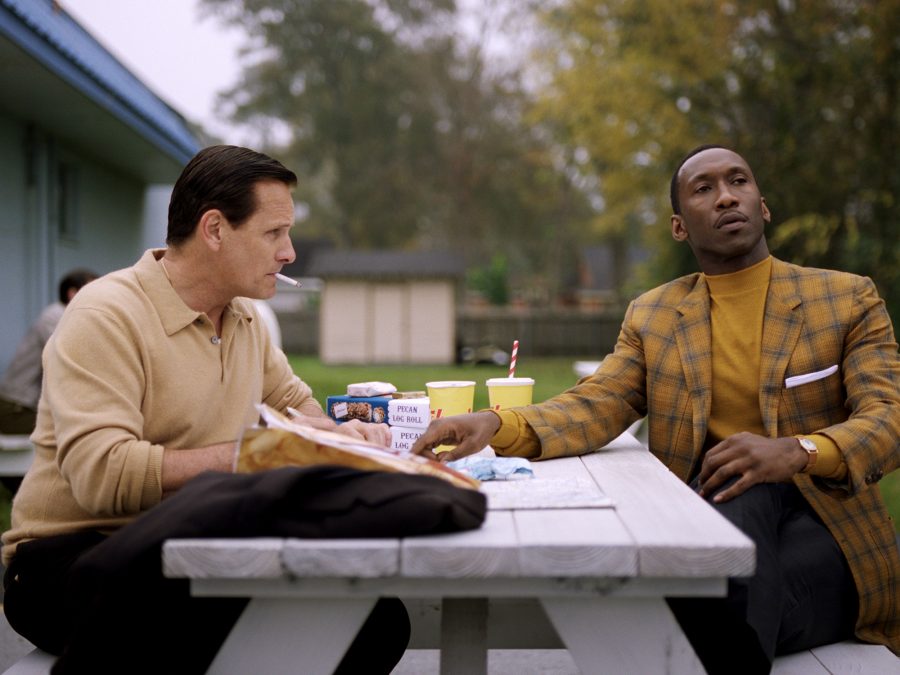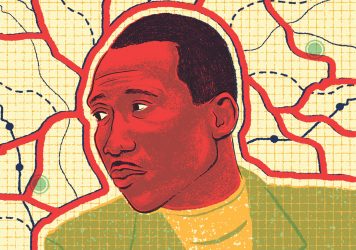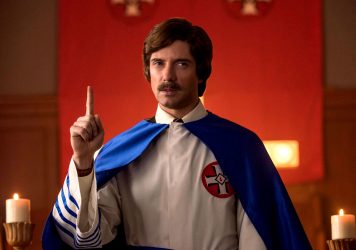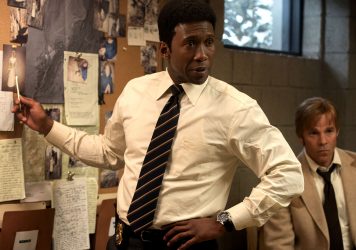Viggo Mortensen and Mahershala Ali embark on a tour of the Jim Crow south in Peter Farrelly’s crowd-pleasing buddy comedy.
You haven’t heard someone do a Noo Yoik accent until you’ve heard Viggo Mortensen do a Noo Yoik accent. In Green Book, the famously erudite, naturalistic screen actor drops his vowels (and piles on what looks to be about 50lbs) to play a gristly, larger-than-life Italian-American meatball called Frank Anthony Vallelonga – nicknamed Tony Lip because of his powers of persuasion.
He may not be the most cultured or well-spoken fellow, but Tony is a first-rate talker, and his superlative bullshitting ability comes in especially handy in his capacity as a bouncer at the Copacabana, the legendary New York nightclub made famous by Sammy and Sinatra and immortalised by Manilow and Marty.
It’s the early 1960s, a time when the mob ruled Manhattan and all men like Tony needed to get by was a smart mouth and a sweet right hook. He’s streetwise enough to keep out of trouble and provide for doting stay-at-home wife Dolores (Linda Cardellini) and their two young kids. But when the Copa is suddenly closed for “refurbishments”, Tony is left seeking other means of employment.
The film appears to be steering towards fish-out-of-water comedy, only to take a sharp left turn into odd couple/buddy comedy territory as Tony is hired by black virtuoso pianist Don Shirley (Mahershala Ali) to be his private chauffeur on an eight-week concert tour. The catch is that Shirley’s proposed route will take the pair right through Jim Crow country.

The title of this true story refers to ‘The Negro Motorist Green Book’, a real-life travel guide published between 1936-1966 which listed African-American-friendly motels, restaurants and service stations in states where segregation was still in effect. The journey our unlikely double act embark on is both literal and metaphorical, as they experience the Deep South in all its natural splendour and ideological ugliness while gradually beginning to see the world through the other’s eyes.
Initially the cultural and intellectual gap between these men seems insurmountable: Don is buttoned-down, well-read and can play Liszt without breaking a sweat; Tony swears, smokes and is visibly stunned when his boss is unable to identify Little Richard or Aretha Franklin on the car radio. But they learn to get along and soon realise that, in fact, they are not so different.
If you’re imagining a sort of crude mash-up of My Fair Lady and a race-swapped Driving Miss Daisy, well, you’re not far off. Green Book is an old-fashioned crowd-pleaser with good intentions that subverts a number of lazy stereotypes while reinforcing others. Tellingly, the script (co-written by Tony’s son Nick) fills in far more of Tony’s background than it does Don’s, who is depicted as a gifted misfit and stubborn loner: estranged from his brother, rejected by his “own people” and viewed as a lower class of citizen by white southerners.
While this allows for some affecting dramatic moments, with Ali once again proving himself to be a performer of rare emotional integrity, it means we’re ultimately left with a rather sketchy picture of one of the greatest and most underappreciated black musicians of his generation. This is another lark-filled road movie from the director of Dumb and Dumber and Me, Myself & Irene – and it’s no less problematic.
Published 30 Jan 2019
A buddy comedy starring two of America’s best actors, from one half of the Farrelly brothers.
Ali and Mortensen are superb.
Just enough (laughing) gas in the tank to merit its two-hour runtime.

By Rowan Woods
One half of the cross-country buddy comedy Green Book muses on changing political attitudes in Hollywood.

Like Do the Right Thing and Bamboozled before it, Spike Lee’s film is a wake up call to white America.

By Emma Fraser
Series creator Nic Pizzolatto hopes to recapture that debut magic, and he’s found the perfect man for the job.